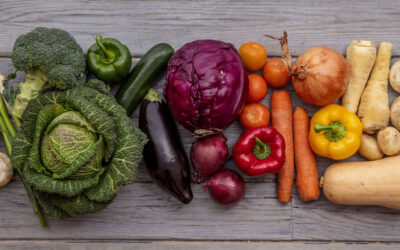
When it comes to nutrition, there is more than one lever you can pull to improve your nutritional habits.
WHY IT MATTERS
When it comes to improving your nutrition, most of us often think about just changing what you eat or don’t eat. But science has shown there are two more levers that are equally as important: when you eat, and how much you eat.

when

what

how much
You goal should be to:
Always pull at least one lever
In other words, it’s not a wise decision to eat as much food as you possibly can, no matter what type of food, and at all times of the day. Aim to be pulling at least one lever at a time.
Often pull two levers at a time
Frame your nutrition goals by thinking about how much you can combine (1) what and when you eat, (2) how much and when you eat, or (3) how much and what you eat.
Rarely pull all three
Too often we think of a diet change and we pull all three levers at once. This is not necessary for long-term success.
Pulling the different levers
Lever 1: When you eat
Every 24 hours you can start to improve your nutrition by simply splitting your eating into chunks, like:
- 12-12 (fast for 12 hours, eat in a 12-hour window)
- 14-10 (fast for 14 hours, eat in a 10-hour window)
- 16-8 (fast for 16 hours, eat in an 8-hour window)
Smaller eating window

when you eat
Larger eating window
Lever 2: What you eat
This can be framed by adding or taking away certain foods, or even following certain “rules” or “diets:”
- Add: Eat More Genius Foods or Coloring Your Microbiome
- Take away: Eliminate Inflammatory Fats or Reduce Refined Sugars
- Rules: popular diets like Paleo, Keto, and the “Pegan Diet
Take away certain foods

what you eat
Add certain foods
Lever 3: How much you eat
This is the idea of eating more or less depending upon your goals.
- Pay attention to portions at meals (larger or smaller)
- Focus on number of meals per day (more or less)
- Total calories can also be a guide for this lever
Eating less

how much you eat
Eating more
As with everything we do, start small and aim for convenience to your schedule. Small changes can lead to big impacts!




